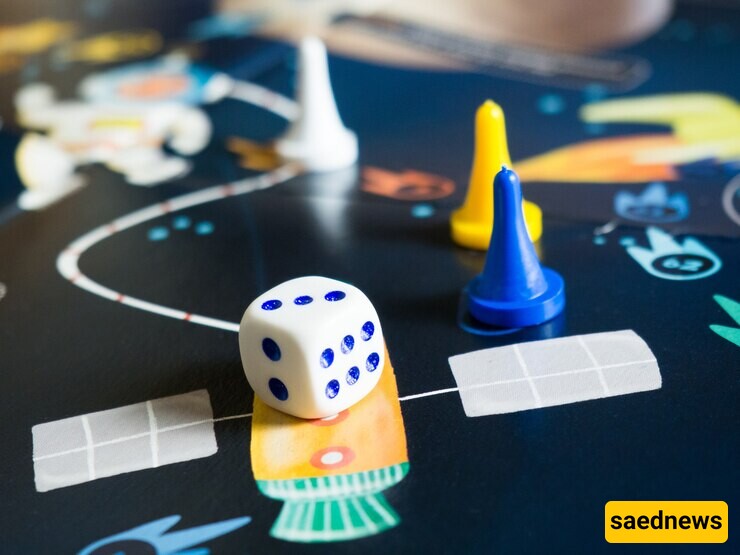SAEDNEWS: Board games have entertained and challenged people for thousands of years, serving as reflections of culture, strategy, and social interaction. Exploring their origins provides a fascinating look into history and highlights their enduring influence on traditions around the world.

According to SAEDNEWS: board games are more than just a source of entertainment; they serve as cultural artifacts that reveal insights into ancient societies. From strategic battles to symbolic rituals, these games have evolved alongside human civilizations, leaving a lasting legacy that continues to shape modern gaming.

Senet, often hailed as the world’s oldest board game, originated in ancient Egypt around 3100 BCE. Played on a grid of 30 squares, the game represented the journey of the soul through the afterlife, blending entertainment with spiritual significance. Archaeological discoveries, including Senet boards in royal tombs, highlight its cultural importance.

Emerging from ancient China over 4,000 years ago, Go is one of the oldest continuously played board games. Its deceptively simple rules—placing stones to control territory—belie its immense strategic depth. Go’s enduring appeal lies in its emphasis on patience, foresight, and adaptability, qualities that have made it a staple of Asian culture.

Chess traces its roots to chaturanga, an Indian game from the 6th century. Chaturanga simulated military strategies with pieces representing infantry, cavalry, elephants, and chariots. The game spread to Persia, where it evolved into shatranj, before reaching Europe in the Middle Ages. By the 15th century, chess had taken its modern form, becoming a symbol of intellect and strategy.

Backgammon’s origins date back nearly 5,000 years to Mesopotamia, where it evolved from a game called the "Royal Game of Ur." Combining dice rolls with strategic moves, it became popular across the ancient world, from the Roman Empire to Persia. Backgammon’s enduring appeal lies in its blend of chance and skill.

Mancala games, with origins in Africa and the Middle East, are among the simplest yet most strategic board games. Played by moving seeds or stones across a series of pits, Mancala games emphasize counting and forward planning. Their simplicity has allowed them to spread globally, adapting to various cultural contexts.

Checkers, or draughts, has a history that stretches back to ancient Mesopotamia and Egypt. The modern version of the game, played on an 8x8 board, emerged in medieval France. Its straightforward rules and strategic challenges have made it a popular pastime across the globe.
Traditional board games often reflected the values and social structures of the cultures that created them. Games like chess and Go symbolized strategic thinking and power dynamics, while Senet and Mancala carried spiritual or agricultural themes. These games not only entertained but also reinforced societal norms and traditions.
Though rooted in antiquity, traditional board games have seamlessly transitioned into modern times. Digital adaptations, international tournaments, and the enduring popularity of classics like chess and Go highlight their universal appeal. These games continue to teach critical thinking and foster social connections, ensuring their relevance for generations to come.
The origins of traditional board games showcase humanity’s enduring love for strategy, competition, and storytelling. These timeless creations, born of ancient ingenuity, remain integral to cultural and social life worldwide. As they evolve, they continue to unite players, bridging the gap between past and present.

